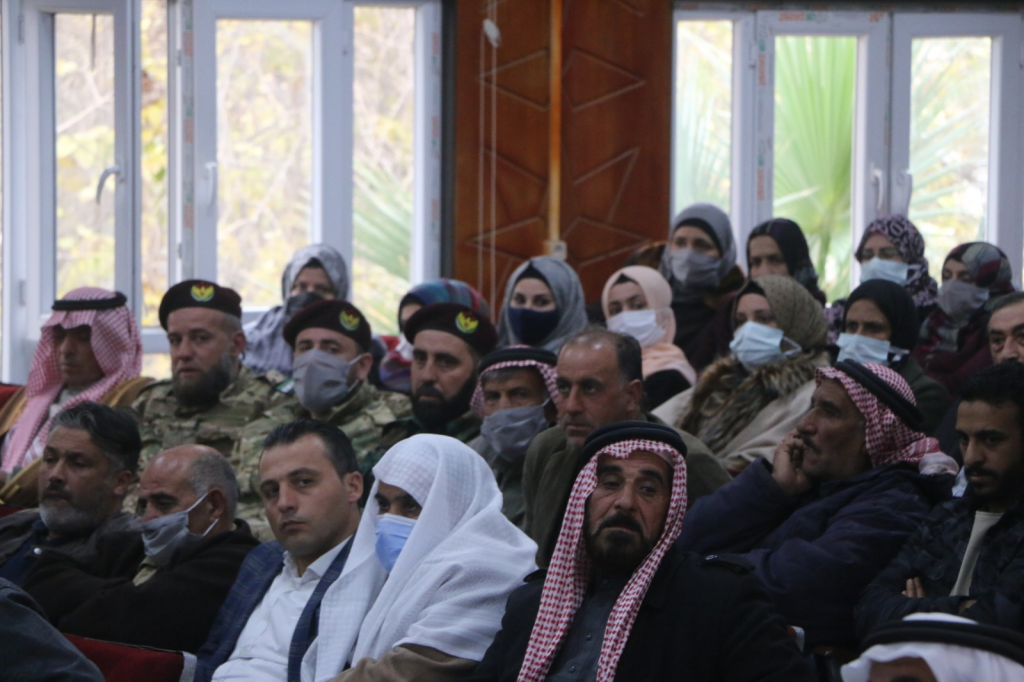President of the Syrian Opposition Coalition (SOC), Salem al-Meslet, met with representatives of civil and military actors in the cultural center in the town of Ras al-Ayn. He discussed with them the conditions in the areas east of the Euphrates and was briefed about the needs of the population and the challenges they are facing.
Al-Meslet was accompanied by Vice-president Raba Habboush and SOC’s members Ahmed Ramadan, Yasser Al-Farhan, Firas Al-Masri, Abdel Basset Abdel Latif, and Ibrahim Al-Malli.
Al-Meslet praised the changes that took place in Ras al-Ayn after it was freed from the PYD militia. He stressed that the SOC is sparing no effort to build services institutions and empower the SOC’s executive arms, namely the Syrian Interim Government and the Assistance Coordination Unit.
Al-Meslet talked about the meetings that the SOC has recently held with ambassadors and officials of Arab and Western states in order to find a political solution that meets the aspirations of the Syrian people for freedom and dignity.
For her part, Vice-president Habboush stressed the need to highlight the true image of the region, including all spectra and components, stressing that Syria’s real strength lies in the diversity of its social components.
Member of the political committee Abdul Latif stressed that the SOC gives priority to work east of the Euphrates in order to improve the services and conditions in the region.
SOC’s member Ahmed Ramadan said that all military attempts by the Assad regime and its backers to crush the revolution have failed due to the sacrifices of the Syrian people, their steadfastness and continuation of the struggle to achieve their aspirations for freedom and dignity.
Members of the local council in Ras al-Ayn spoke about the council’s work to improve conditions in the town despite the limited resources. They pointed out the council set up bakeries and equipped the national hospital to confront the Covid-19 pandemic and the leishmaniasis disease. It also opened 148 primary and secondary schools.
The council stressed that the region is home to various components of Arabs, Turkomen, Christians, Kurds, Circassians and Chechens who live in peaceful coexistence and fraternity, which is crucial for establishing security and restoring stability.
Head of the mayors’ office also spoke about the suffering of the population, especially farmers as a result of the shortage of water and fodder, which has caused shortages at the level of agriculture and livestock.
The local people raised the needs of the area due the blockade, and talked about the difficulties facing the education sector as some schools suffer due to the lack of heating and unified curricula.
(Source: SOC’s Media Department)













